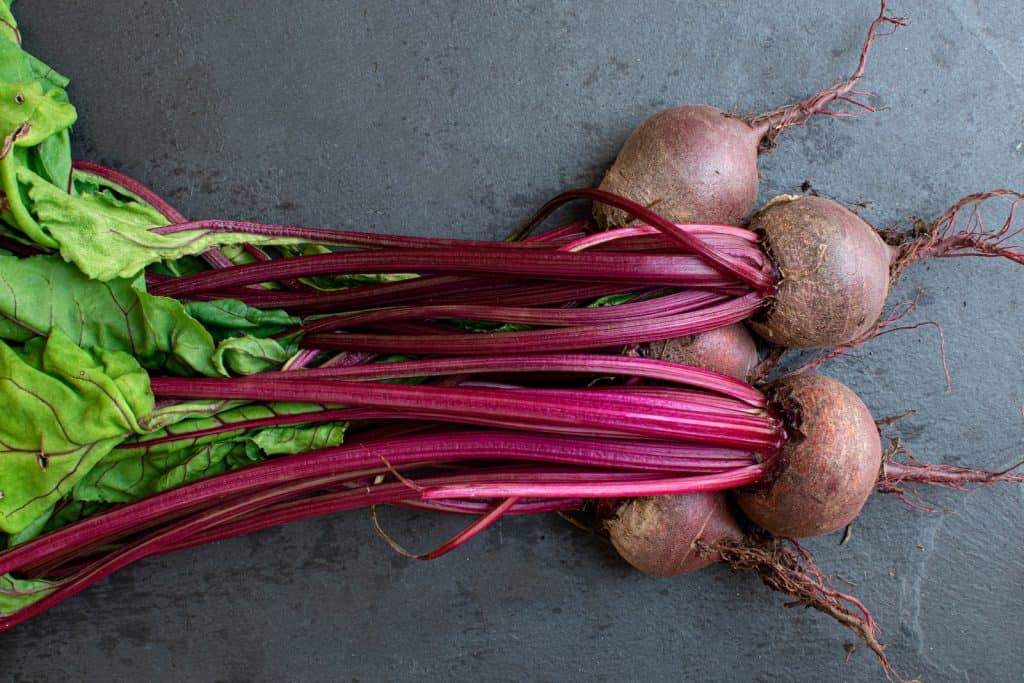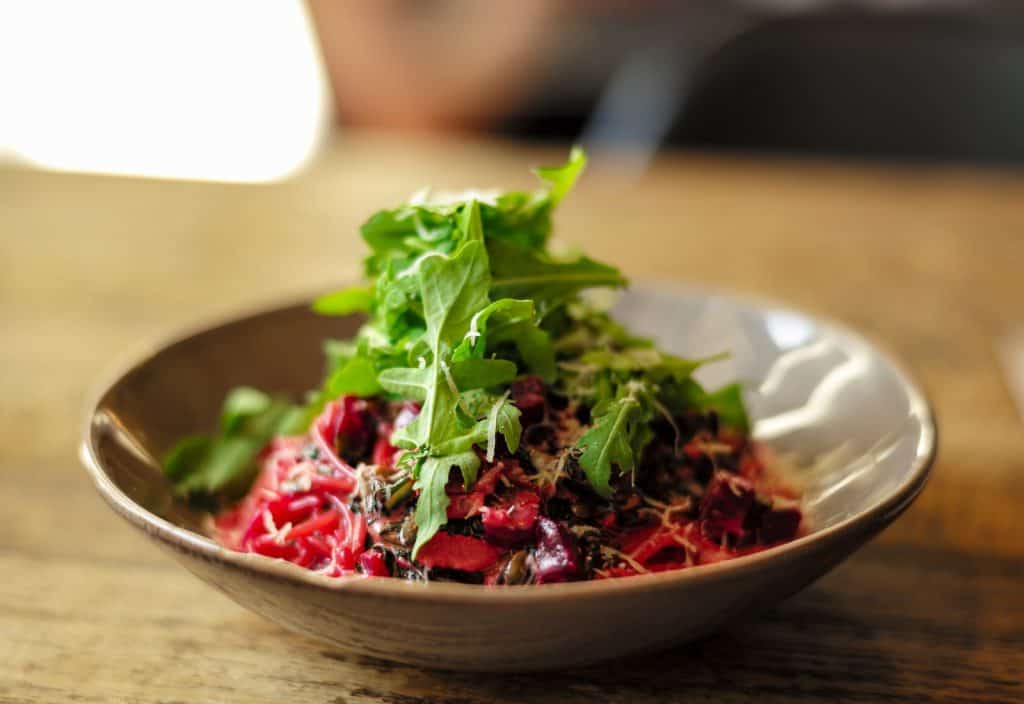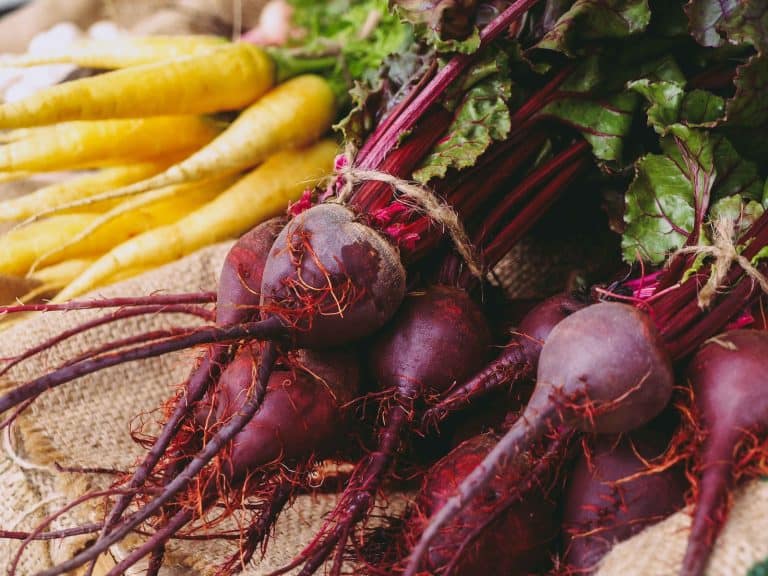According to the World Health Organization, iron deficiency is the most common nutrient deficiency in the world. It’s estimated that around 25% of the world’s population is affected by iron deficiency, which can lead to a host of problems like fatigue, weakness, and even depression. If you’re looking for a natural way to boost your iron levels, you may want to consider adding beets to your healthy diet.
Are beets good for iron deficiency? This is a question that many people are asking. The answer is yes, beets are a great food to eat if you are trying to increase your iron levels. In this blog post, we will discuss the health benefits of beets and how they can help improve your iron levels. We will also provide some recipes so that you can start incorporating beets into your diet!
What is Iron-deficiency anemia and how do you treat it?
Iron deficiency anemia is a condition in which the body does not have enough healthy red blood cells. Red blood cells are responsible for carrying oxygen to the tissues in your body. When there are not enough red blood cells, the tissues and organs do not get enough oxygen, and this can lead to fatigue, weakness, and other problems.
What are the symptoms of iron deficiency?

The symptoms of iron deficiency can vary depending on the severity of the deficiency. Some common symptoms include fatigue, weakness, pale skin, shortness of breath, and dizziness.
If you are experiencing any of these symptoms, it is important to see a doctor to get your iron levels checked. If you are found to be deficient in iron, your doctor may recommend that you take an iron supplement or make changes to your diet.
Are beets good for iron deficiency?
Beets are an excellent source of dietary iron. In fact, just one cup of cooked beets contains 3 mg of iron, which is nearly 20% of the daily recommended intake for adults. But that’s not all; beets are also rich in other nutrients that help your body absorb and use iron more effectively. These include vitamin C, copper, and manganese.
Iron-deficiency anemia is treated by increasing the amount of iron in your diet. This can be done by eating foods that are rich in iron, such as beef, chicken, fish, leafy green vegetables, beans, and nuts. You can also take iron supplements to help increase your iron levels. If you are pregnant or breastfeeding, you may also need to take iron supplements as well.
Iron absorption is increased when iron is taken with vitamin C. For this reason, it’s a good idea to eat foods that are rich in both iron and vitamin C, such as citrus fruits, strawberries, bell peppers, tomatoes, and broccoli. You can also take a vitamin C supplement to help boost your iron absorption.

If you are looking for a natural way to boost your iron levels, beets are a great option. Beets are rich in iron and other nutrients that help your body absorb and use iron more effectively. They are also low in calories and fat, making them a healthy addition to any diet. Try incorporating beets into your diet by adding them to salads, soups, or smoothies. You can also roast them and add them to side dishes or main courses. Whatever way you choose to eat them, beets are a delicious and nutritious way to increase your iron levels!
Other health benefits of beets
In addition to boosting your iron levels, beets also have a number of other health benefits.
Beets can help to improve blood flow and circulation.
One of the benefits of beets is that they can help to improve blood flow and circulation. This is because beets are a good source of nitrates, which are converted into nitric oxide in your body. Nitric oxide is a gas that helps to widen and relax the blood vessels, improving blood flow and circulation.
Beets are a good source of antioxidants.
Beets are also a good source of antioxidants, which are substances that help to protect your cells from damage. Antioxidants are important for overall health, and they have been linked with a reduced risk of some chronic diseases, such as heart disease and cancer.
Beets can help to lower blood pressure.
Another health benefit of beets is that they can help to lower blood pressure. This is due to the nitrates in beets, which are converted into nitric oxide in your body. Nitric oxide helps to widen and relax the blood vessels, improving blood flow and lowering blood pressure. If you’re taking blood pressure medication, be sure to talk to your doctor before adding beets to your diet, as they may interact with your medication.
Beets can help to detoxify the body.
Beets are also good food for detoxifying the body. This is because they contain betacyanin, a substance that helps to protect the liver from damage. Betacyanin is also thought to have anti-cancer properties. Drinking beetroot juice is a popular way to detoxify the body, but you can also add beets to salads, soups, or smoothies.

Beets can help to boost energy levels.
This is due to the fact that they are a good source of dietary iron. Iron is important for making hemoglobin, a substance in red blood cells that carries oxygen to the tissues in your body. When there is not enough iron in your diet, you may feel tired and weak.
Beets can help to improve cognitive function.
One of the benefits of beets is that they can help to improve cognitive function. This is due to the fact that they are a good source of antioxidants and nitrates. Antioxidants are important for overall health, and they have been linked with a reduced risk of some chronic diseases, such as Alzheimer’s disease. Nitrates are converted into nitric oxide in your body, and nitric oxide is thought to help improve cognitive function.
Beets are a good source of fiber.
Beets are also a good source of fiber. Fiber is important for digestive health, and it can also help to lower cholesterol levels and blood sugar levels. Nitrate-rich beetroot juice is a popular way to get fiber into your diet.
Different beetroot juices to try
There are a number of different beetroot juices that you can try. One popular option is to mix beetroot juice with carrot juice. Another option is to mix beetroot juice with apple juice. You can also add other ingredients, such as ginger or lemon, to create your own unique flavor. You can drink beetroot juice on its own or use it in smoothies, soups, or salad dressings. Experiment and find a combination that you enjoy!
What are iron-rich foods?
Iron-rich foods are foods that are high in iron. Some examples of iron-rich foods include meat, poultry, fish, beans, lentils, spinach, tofu, and fortified cereals.
Are there any side effects of taking iron supplements?
Side effects of taking iron supplements are rare, but they can occur. Some common side effects include constipation, diarrhea, nausea, and vomiting. If you are experiencing any of these side effects, it is important to talk to your doctor.
Final Thoughts: Are beets good for iron deficiency?
If you’re looking for a natural way to boost your iron levels, eat more beets. Beets are a good source of dietary iron and they can help to improve cognitive function. They are also a good source of fiber, which is important for digestive health. You can eat beets raw, cooked, or juiced. So what are you waiting for? Start incorporating more beets into your diet today!
Other suggested articles:
- Are Airheads Vegan
- Are Almond Joys Vegan
- Are Animal Crackers Vegan Friendly
- Are Beets Good For Iron Deficiency
- Are Cape Cod Chips Vegan
- Are Club Crackers Vegan
- Are Fruit Roll Ups Vegan
- Are Funyuns Vegan
- Are Gushers Vegan
- Are Hot Tamales Vegan
- Are Jelly Bellys Vegan
- Are Jolly Rancher Gummies Vegan
- Are Junior Mints Vegan
- Are Kettle Brand Chips Vegan
- Are Lifesavers Vegan
- Are Nature Valley Bars Vegetarian A Comprehensive Guide
- Are Nerds Vegan
- Are Pop Rocks Vegan
- Are Red Vines Vegan
- Are Rice Cakes Vegan
- Are Ring Pops Vegan Answered
- Are Ring Pops Vegan Revealed
- Are Ritz Peanut Butter Crackers Vegan
- Are Ruffles Vegan
- Are Saltine Crackers Vegan
- Are Scooby Snacks Vegan
- Are Snickers Vegan
- Are Sugar Wafers Vegan
- Are Sun Chips Vegan
- Are Tic Tacs Vegan
- Are Twinkies Vegan
- Are Twizzlers Vegan
- Are Veggie Straws Vegan
- Are Warheads Vegan

